VW ID.4 VS Porsche Cayman – Specs, Efficiency & Price Comparison
Which model is the better choice – the VW ID.4 or the Porsche Cayman? We compare performance (340 HP vs 500 HP), boot capacity (543 L vs 184 L), efficiency (15.80 kWh vs 13 L), and of course, the price (34600 £ vs 136000 £).
Find out now which car fits your needs better!
The VW ID.4 (SUV) is powered by a Electric engine and comes with a Automatic transmission. In comparison, the Porsche Cayman (Coupe) features a Petrol engine and a Automatic gearbox.
When it comes to boot capacity, the VW ID.4 offers 543 L, while the Porsche Cayman provides 184 L – depending on what matters most to you. If you’re looking for more power, you’ll need to decide whether the 340 HP of the VW ID.4 or the 500 HP of the Porsche Cayman suits your needs better.
There are also differences in efficiency: 15.80 kWh vs 13 L. In terms of price, the VW ID.4 starts at 34600 £, while the Porsche Cayman is available from 136000 £.
Compare all the key specs now and find out which model fits your lifestyle best!
VW ID.4
The VW ID.4 represents Volkswagen's commitment to the electric vehicle market, combining contemporary design with sustainability. Its spacious interior and intuitive technology make it an attractive choice for those seeking comfort and innovation in an eco-friendly package. With a focus on electric performance and practicality, this car is set to be a popular option among environmentally-conscious drivers.
details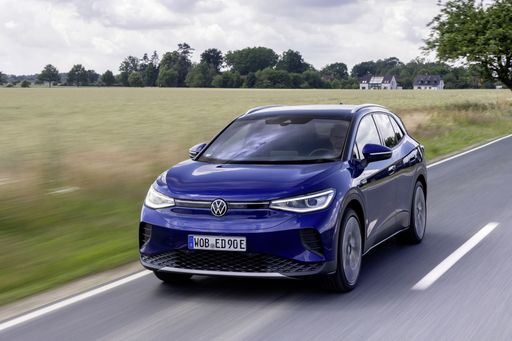 @ Volkswagen
@ Volkswagen
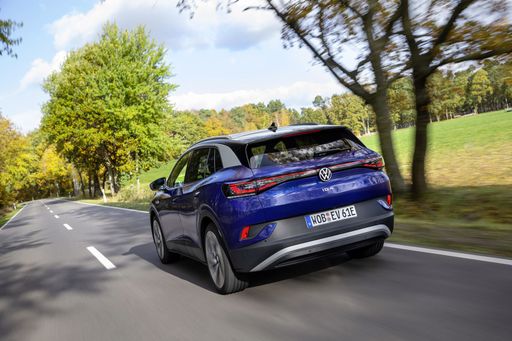 @ Volkswagen
@ Volkswagen
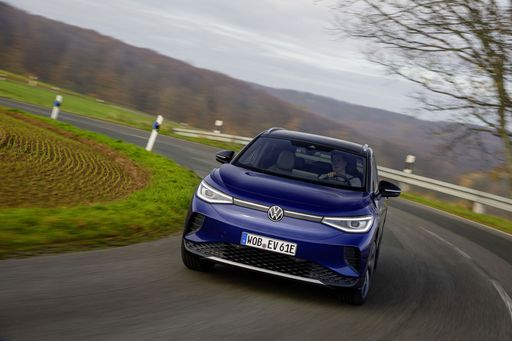 @ Volkswagen
@ Volkswagen
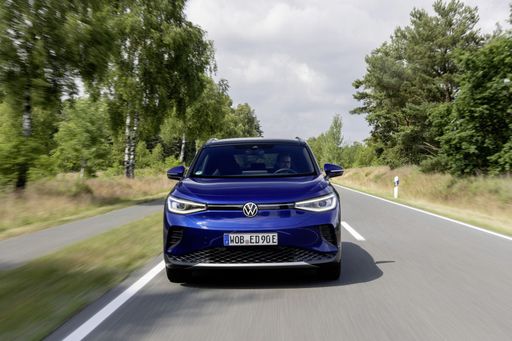 @ Volkswagen
@ Volkswagen
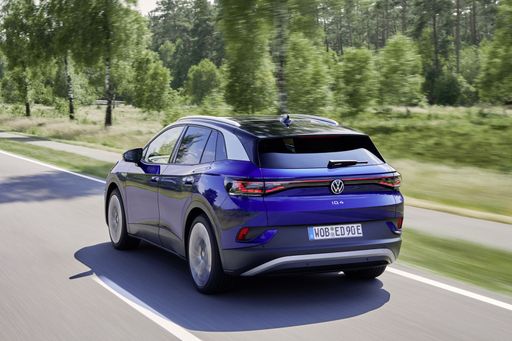 @ Volkswagen
@ Volkswagen
 @ Volkswagen
@ Volkswagen
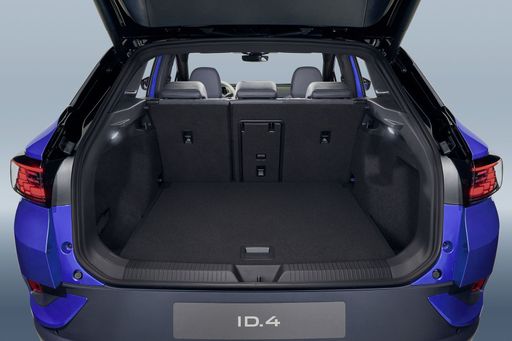 @ Volkswagen
@ Volkswagen
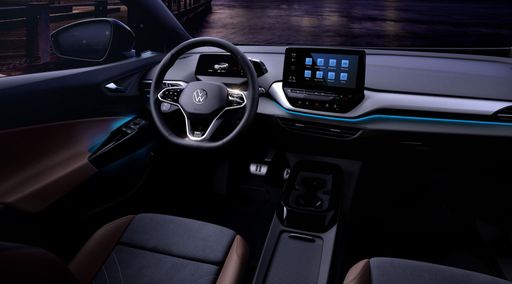 @ Volkswagen
@ Volkswagen
Porsche Cayman
The Porsche Cayman stands out as a quintessential sports car, blending sleek design with dynamic handling. Its mid-engine layout provides an excellent balance and sharp agility that driving enthusiasts crave. Inside, the Cayman offers a refined and driver-focused interior, ensuring that every journey is an exhilarating experience.
details

|
|
|
|
|
Costs and Consumption |
|
|---|---|
|
Price
34600 - 46700 £
|
Price
136000 £
|
|
Consumption L/100km
-
|
Consumption L/100km
13 L
|
|
Consumption kWh/100km
15.8 - 16.8 kWh
|
Consumption kWh/100km
-
|
|
Electric Range
357 - 572 km
|
Electric Range
-
|
|
Battery Capacity
52 - 77 kWh
|
Battery Capacity
-
|
|
co2
0 g/km
|
co2
295 g/km
|
|
Fuel tank capacity
-
|
Fuel tank capacity
54 L
|
Dimensions and Body |
|
|---|---|
|
Body Type
SUV
|
Body Type
Coupe
|
|
Seats
5
|
Seats
2
|
|
Doors
5
|
Doors
2
|
|
Curb weight
1979 - 2261 kg
|
Curb weight
1490 kg
|
|
Trunk capacity
543 L
|
Trunk capacity
184 L
|
|
Length
4582 - 4584 mm
|
Length
4456 mm
|
|
Width
1852 mm
|
Width
1822 mm
|
|
Height
1619 - 1634 mm
|
Height
1267 mm
|
|
Payload
509 - 541 kg
|
Payload
281 kg
|
Engine and Performance |
|
|---|---|
|
Engine Type
Electric
|
Engine Type
Petrol
|
|
Transmission
Automatic
|
Transmission
Automatic
|
|
Transmission Detail
-
|
Transmission Detail
Automat. Schaltgetriebe (Doppelkupplung)
|
|
Drive Type
Rear-Wheel Drive, All-Wheel Drive
|
Drive Type
Rear-Wheel Drive
|
|
Power HP
170 - 340 HP
|
Power HP
500 HP
|
|
Acceleration 0-100km/h
5.4 - 9 s
|
Acceleration 0-100km/h
3.40 s
|
|
Max Speed
160 - 180 km/h
|
Max Speed
315 km/h
|
|
Torque
310 - 679 Nm
|
Torque
450 Nm
|
|
Number of Cylinders
-
|
Number of Cylinders
6
|
|
Power kW
125 - 250 kW
|
Power kW
368 kW
|
|
Engine capacity
-
|
Engine capacity
3996 cm3
|
General |
|
|---|---|
|
Model Year
2023 - 2024
|
Model Year
2021
|
|
CO2 Efficiency Class
A
|
CO2 Efficiency Class
G
|
|
Brand
VW
|
Brand
Porsche
|
VW ID.4
The VW ID.4: A Leap into the Electric Era
As electric vehicles steadily capture the automotive market, the Volkswagen ID.4 stands as a testament to impressive innovation and functionality. Combining eco-friendly technology with the practicality of an SUV, the VW ID.4 is designed to appeal to both environmentally conscious drivers and those seeking versatility in their vehicle choice. In this article, we'll explore the significant technical features and innovations that make the ID.4 a remarkable option in the electric vehicle market.
Powertrain Options: Efficiency Meets Performance
The Volkswagen ID.4 offers a range of powertrain options to suit various driving preferences. With power outputs ranging from 170 to 340 PS and torque figures between 310 and 679 Nm, the ID.4 provides a versatile driving experience. Whether you opt for the responsive rear-wheel drive or the enhanced stability of the all-wheel-drive configuration, each model guarantees smooth and efficient performance.
With an emphasis on efficiency, the ID.4 boasts a consumption rate between 15.8 and 16.8 kWh/100km, making it an economical choice for those mindful of their energy usage. Furthermore, the ID.4 offers a robust driving range, with potential distances reaching up to 572 km, reducing the need for frequent recharging and allowing for longer journeys with peace of mind.
Charging and Battery Technology
Efficiency isn't the only strong suit of the ID.4—the battery technology is equally impressive. With a battery capacity ranging from 52 to 77 kWh, Volkswagen ensures that drivers can match their vehicle choice to their lifestyle needs. Charging is straightforward and adaptable, providing convenience whether at home or on the move.
The ID.4 is designed for compatibility with a variety of charging infrastructure, ensuring rapid charging times and minimal downtime. This thoughtful engineering ensures that drivers spend more time on the road and less time waiting at charging stations.
Design and Practicality: An SUV with a Mission
The VW ID.4 embraces its SUV heritage, offering ample interior space and practicality without compromising on style. With its dimensions ranging from 4582 to 4584 mm in length, 1852 mm in width, and up to 1634 mm in height, the ID.4 ensures a comfortable and spacious environment for up to five passengers.
Additionally, the ID.4 provides a generous boot space of 543 litres, making it ideal for families or those with an active lifestyle requiring extra storage. The careful consideration in design extends to weight efficiency, with the vehicle's own weight between 1979 and 2261 kg helping to enhance its overall drive dynamics and efficiency.
Innovative Features and Technology
Volkswagen has equipped the ID.4 with a suite of advanced technological features designed to enhance both safety and driving enjoyment. These features include intuitive infotainment systems, driver-assistance technologies, and connectivity options tailored to modern expectations.
One standout attribute of the ID.4 is its commitment to sustainability with a CO2 efficiency class of A, demonstrating Volkswagen's dedication to reducing environmental impact without sacrificing performance or functionality.
Conclusion: The Future is Electric
The VW ID.4 is a shining example of how traditional automotive excellence adapts to contemporary demands for sustainability and efficiency. Whether you are an enthusiastic early adopter of electric vehicles or simply someone in search of a reliable and advanced SUV, the ID.4 offers a compelling package designed for the future.
For anyone ready to embrace the electric revolution, the Volkswagen ID.4 represents a significant step forward—a combination of forward-thinking technology, efficient design, and an emphasis on practicality. This makes the ID.4 a worthy consideration for any discerning driver looking to invest in their next vehicle.
Porsche Cayman
The Porsche Cayman: A Masterclass in Precision Engineering
For decades, Porsche has been synonymous with precision, power, and unparalleled driving experience. The Porsche Cayman, particularly the newest iteration like the 718 Cayman GT4 RS, continues this legacy with a suite of cutting-edge technical features and exhilarating performance capabilities. Nestled in the sports car segment, this coupe has been engineered to provide an almost symbiotic relationship between car and driver.
Performance that Blazes a New Trail
The heart of the Cayman GT4 RS is a robust 4.0-liter naturally aspirated flat-six engine, pushing out an astounding 500 horsepower. This engine provides a visceral connection to the road, combined with a curiously addictive exhaust note that Porsche enthusiasts have come to love. With 450 Nm of torque, the acceleration feels unyielding, propelling the car from 0 to 100 km/h in a mere 3.4 seconds. Coupled with a PDK dual-clutch automatic transmission, each gear change feels precise and instantaneous, making it an exhilarating drive on both road and track.
Innovative Design Meets Functionality
The Porsche Cayman has always showcased a balance of aesthetic elegance and aerodynamic functionality. With a length of 4456 mm, width of 1822 mm, and a height of 1267 mm, the dimensions are tightly packed for optimal stability and agility. The coupe's 1490 kg curb weight contributes to its nimbleness, while the rear-wheel-drive configuration ensures a pure sports-car feel.
Efficiency Coupled with Performance
While performance is at the core of the Porsche ethos, efficiency hasn't been compromised. The Cayman GT4 RS has a fuel consumption rate of 13 L/100 km, striking an impressive balance between power and sustainability, although it maintains a CO2 efficiency class of G, indicative of its performance-oriented design.
Details that Make a Difference
Inside the cabin, the Cayman is fitted to perfection with a focus on the driver-centric experience. Despite its sporty DNA, it doesn't skimp on comfort—there's ample seating for two alongside a sizable trunk capacity of 184 liters, enhancing its practicality for weekend getaways.
Additionally, the car boasts a CO2 emission of 295 g/km and supports a payload of 281 kg, underscoring its utility without detracting from its core focus on high performance.
The Ultimate Driving Machine?
With a top speed of 315 km/h, the Cayman GT4 RS lives up to its billing as a track-bred sports car. The precision engineering, combined with innovative technological integrations, sets it apart from contemporaries in its class. While the sleek exterior exudes luxury, it's the engineering beneath that makes the Cayman an acme of what a modern sports coupe can achieve.
In the Porsche Cayman, enthusiasts meet a machine so finely tuned and so divinely balanced that it stands as a testament to the relentless pursuit of perfection—a masterpiece of modern automotive engineering.
The prices and data displayed are estimates based on German list prices and may vary by country. This information is not legally binding.
